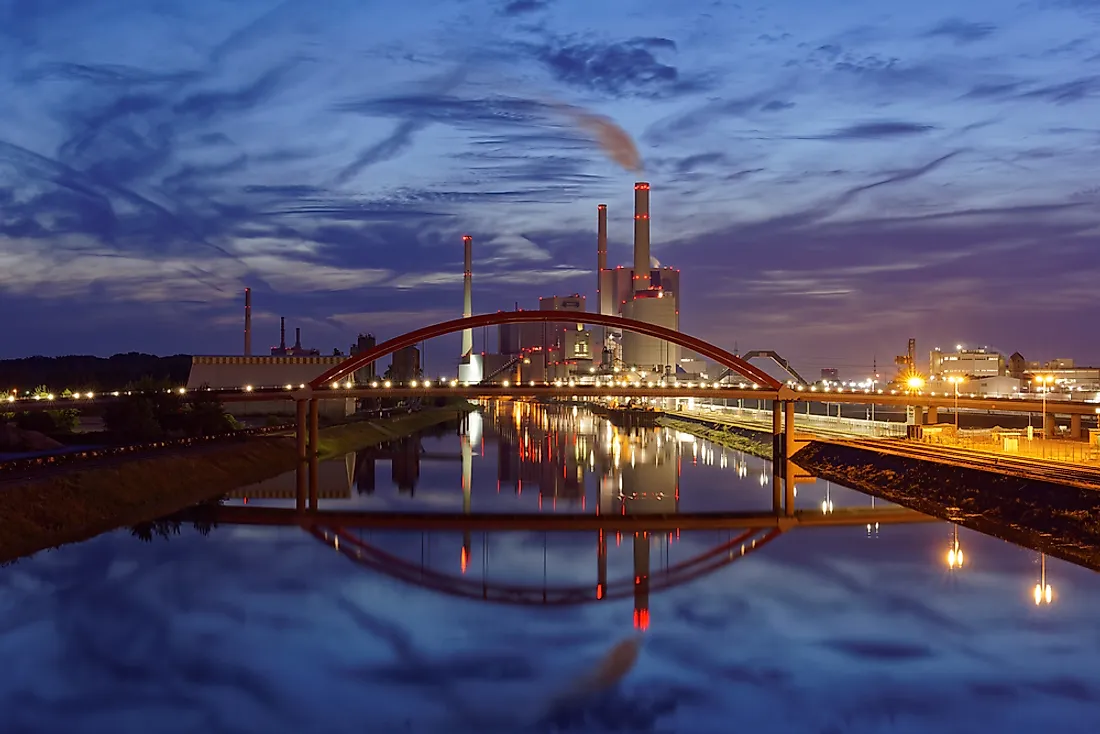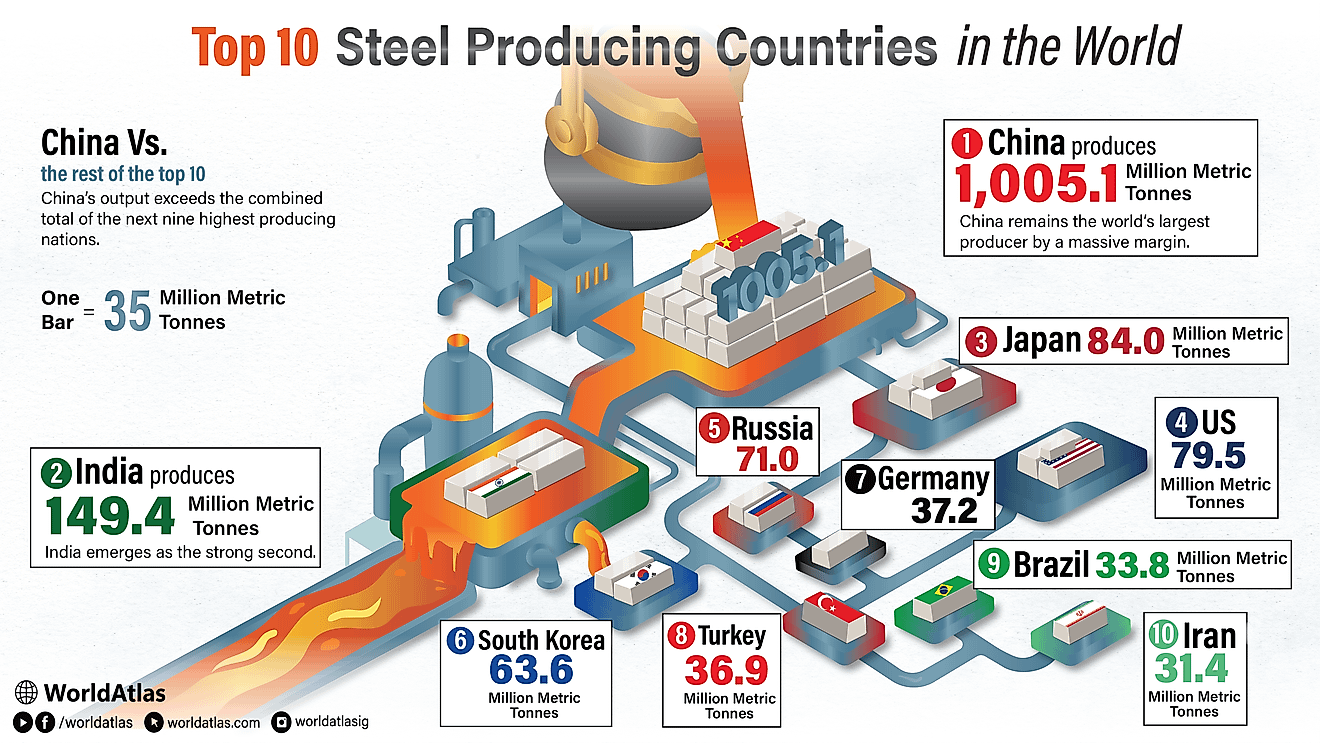What Are The Major Natural Resources Of Germany?

Germany is home to one of the largest economies in the world. The country has a wealth of natural resources that range from coal deposits to natural gas. The natural resources contribute significantly to the national economy through either the generation of energy or providing materials for export. The industrial revolution in Germany marked the beginning of the intensive exploitation of natural resources thanks to the development of machinery.
Coal
Germany has some of the largest coal reserves in the world, and it leads the world in the production of lignite. Germany's coal reserves are estimated to be close to 5% of the world's total. Germany has Europe's largest lignite mine, the Garzweiler mine. Coal is essential to Germany's economy as it has been the country's chief source of energy since the industrial revolution. Hard coal fuelled the country's economic growth after the end of the Second World War.
Some of Germany's coal deposits are challenging to extract due to either location or depth. The harvesting of such deposits is extremely expensive, so often the German government does not consider mining the deposits economically viable. To reduce the cost incurred by mining companies in the extraction of hard coal, the German government introduced subsidies in the 1960s. The German government is set to close its final two hard coal mines in 2018. In Germany, the production of lignite is limited to three districts with four companies managing the mines.
Natural Gas
Since 2003, the amount of natural gas produced in Germany has steadily decreased. Germany's natural gas reserves are ranked 50th in the world with an estimated capacity of 175,600 million m3 according to data from The World Factbook. Studies carried out by German geologists indicate that the country's reserves are close to being depleted.
Germany is only 8% self-sufficient in the production of natural gas and must import the rest of their supply. Demand for natural gas in Germany is high with slightly over 22% of the country's primary energy requirements being satisfied by natural gas. Germany imports more natural gas than any other country in the world with Russia, Norway, and the Netherlands supplying most of the country's imports. The primary consumers of natural gas are houses and small businesses mainly for heating. In 2017, about 13.1% of the natural gas was used in the generation of electricity. Germany's infrastructure only allows for the importation of natural gas through pipelines.
Timber
Timber is one of the most critical natural resources in Germany with the country ranking fifth in wood exports internationally. Germany has about 150,000 timber companies with more than 1.2 million people employed in the sector. Growth in the German wood industry is mainly attributed to the growth of the construction industry as wood is a favorite construction material. The growth of the furniture industry in Germany also contributes to the growth of the timber industry.
Arable Land
Data from the World Bank indicates that below 34% of the land in Germany is arable. The impact of agriculture on the German economy cannot be understated as in the first quarter of 2018 it provided about 4.3 billion euros to the economy. A wide variety of crops are grown on Germany's arable land ranging from cereals to fruits and vegetables. Around most of Germany's large cities, fruits and vegetables are grown mainly for sale to the towns. The different regions in Germany produce different crops due to the variation in conditions.
Uranium
Uranium was exploited in Germany, mainly during the separation with East Germany having more uranium exploration than West Germany. The uranium was extracted in both underground mines and open pits and then processed in facilities close to the mines. Before the unification of Germany, East Germany produced close to 7,000 tons of uranium annually. The Uranium was an essential ingredient for nuclear weapons and nuclear energy facilities. The sector employed more than 400,000 people in total before it was closed down after the reunification of Germany. The primary issue that led to its closure was the impact it had on the environment. In 2007, production of uranium was estimated at around 38 tons from the Königstein mine. Having produced more than 230,400 tons, East Germany was ranked third in production of uranium.
Copper
One of Germany's essential minerals is copper as the state was ranked sixth in the production of refined copper internationally as well as third in the consumption of copper. Refined copper production in Germany is dominated by Arubis who also dominate production in the European Union. Copper is an integral part of electrical equipment ensuring that the country always has a market for its product.











